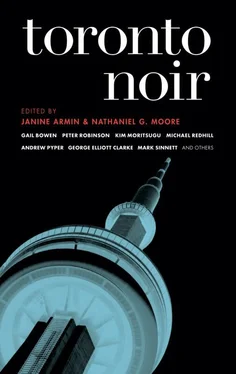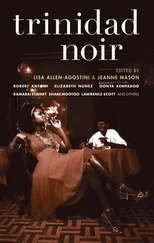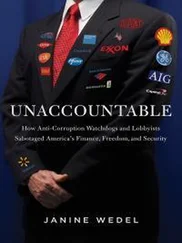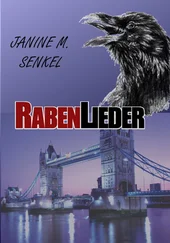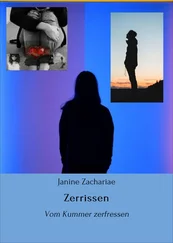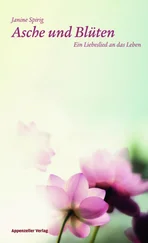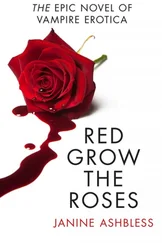A young girl was working. Thursday nights were quiet. It was just her up front and her mum cooking in the back. She glided over and leaned her elbows on the counter.
“Ras malai,” said one of the men.
“With saffron,” said the other.
“We don’t do them with saffron,” said the girl. “Sorry.”
“What the hell, don’t do them with saffron ,” said the first man. His voice was loud now. “First it’s minus bloody twenty-thirty degrees in your country. Benchod, you freeze your bloody nuts off! Now we ask ras malai with saffron, but you say no saffron.”
The girl whisked a stray bit of hair back from her forehead. “Yeah, no saffron. We’ve only got plain. You should try the gulab jamun. They’re good. Really fresh.”
The second man whispered something to the first man. Aziz scooped rogan josh into his mouth with his fingers, but didn’t take his eyes off the two men. They were dressed similarly: collared shirts — tucked into their jeans and unbuttoned to reveal great thrusts of chest hair — and leather jackets. The louder one had a mustache. The other didn’t. They both wore red threads tied around their wrists.
The second man, the clean-shaven, quiet one, said, “Gulab jamun, too sweet.”
“Try the jalebi,” said the girl.
The first one made a noise. “Benchod, even sweeter! You have ras malai, you add saffron, not too sweet. We want not too sweet.” He turned to Aziz. His eyes went from Aziz’s face to a poster above the table where Aziz was eating. On it was the actor Shahrukh Khan, mugging for the camera in sunglasses. “Is it right, Shahrukh?”
“Sorry?” said Aziz.
“Come on, Shahrukh.” He was getting into it now. “You want sweets, Shahrukh? You’re a film hero, which sweets will you order? You eat jalebi?”
Aziz looked at the girl on the other side of the counter. She looked back.
“Um,” said Aziz.
The two men advanced toward him. “What, Shahrukh?” said the one with the mustache. “Come on, yaar.”
The other one said something in what Aziz guessed was Marathi. Both men laughed. They were at his table now. The loud one poked his tin plate with a fingertip. “You eat meat, Shahrukh? You are Mussulman, just like the real Shahrukh?”
Aziz glanced down at his plate, at the half-eaten lamb. He looked up at the one man, then the other. They leaned toward him. There was beer on their breath. When the one with the mustache breathed his nose made a whistling noise.
Then a bell rang from the back. “Chicken tikka, naan, mattar paneer,” called the girl.
The old guy at the front of the restaurant got up. Aziz and the two men watched him move past their table and collect a paper bag from the girl. “Thanks,” he said.
The old guy left. Outside the snow was blowing in golden squalls in the light of the streetlamps. The two men turned back to Aziz. “Shahrukh,” said the loud, mustachioed one, “we are looking for a journalist. Do you know this journalist? His name is Meerza.”
“Shahrukhji,” said the other, “we work for a Mussulman. In Mumbai. We are not communalists. Our friends are Mussulman, Parsi, Hindu, Jain, Christian, whomever.”
The two men sat down across from Aziz. “I am Prem, this is Lal,” said the one with the mustache.
“Do you know this man, this Meerza?” asked Lal. He pulled out a photograph and slid it across the table. Aziz looked at the image. It was his neighbor, smiling before a typewriter. Aziz knew this man as Durani, the name written on his box in the building’s mailroom, and not Meerza. “We are journalists also,” said Lal. “We have come from India to meet this man.”
Aziz stared at the photograph. Once he had locked himself out and Durani had taken him into his own apartment until the superintendent arrived. The place had been empty except for a mattress on the floor and a few piles of books. While they were waiting Durani had prepared chai in the Kashmiri style, with almonds, cinnamon, and cardamom. Aziz had said nothing about this, nor had he mentioned the many books of Urdu poetry stacked around the room. The building, just west of Greenwood, was the sort of place where everyone had left a story behind somewhere else. The residents shared this, along with the understanding that no one needed to stir them up here.
In the photograph Durani looked different. There were no bags under his eyes. The skin on his face seemed less sallow. He appeared gregarious and happy, full of energy. His shirt was clean and freshly pressed. This was not how he looked now. But it was him.
“Do you know this Meerza?” asked Prem. He laid a clammy hand on Aziz’s arm. The knuckles bristled with hair. There was a time when Aziz would have taken that wrist between his fingers and snapped it like a twig. Instead, all he did now was resist the urge to yank his own arm away.
Aziz looked at the photograph again, then up at Prem. “No,” he said. “I don’t know anyone named Meerza.”
Prem and Lal sat there for a moment before Lal took back the photograph. “Okay.”
“What is playing at the cinema, Shahrukh?” said Prem, letting go of Aziz.
“At the Beach or at the Gerrard?”
“The one just there.” Prem motioned with his hand down the street. The gesture traced Aziz’s walk home, past the tikka houses and stores of religious paraphernalia, past the Ulster Arms with its coterie of drunks smoking in the parking lot, streetcars clattering by in both directions.
“The one that shows Hindi films,” said Lal.
“The Gerrard?” The cinema had reopened recently after years of dereliction. Durani worked there as an usher. Aziz often saw him leaving for work in the starchy uniform, bow tie and all. “I think that place is closed.”
“No,” said Prem. “Definitely not closed, Shahrukh. Is it, Lal?”
“No,” said Lal.
“No, we are quite certain that it is open. In fact, we have come all the way from India especially to make a visit there.”
“We have heard the films are very good,” said Lal. “First-class Hindi films.”
“Perhaps you are starring, Shahrukh?” Prem grinned. A single gray tooth appeared like a tombstone amidst a row of white. Aziz stared at it. It was a dead thing.
Lal slapped the table with both hands. The smack made Aziz jump. It was a sudden, swift act of violence from the quiet man. “We will go to the cinema then,” said Lal. “What is playing, it does not matter. We will go for the songs.”
The two men stood. “Finish your meal, Shahrukh,” said Prem. “Enjoy your meat.”
They headed out into the night. The snow whirled into the restaurant on a blast of cold air as they left, and then the door closed. Through the window Aziz watched the two men zip their coats and turn their collars up against the snow, then move off down the street.
Aziz turned back to his meal. He stirred the rogan josh with his fingertips. The lamb had gone cold.
The man in 8B whom he knew as Durani answered Aziz’s knock in his shirtsleeves. He looked at Aziz without speaking, hiding most of his body behind the door. Aziz dripped melting snow onto the landing, his eyelashes trapping beads of frost.
“There are two men looking for you,” said Aziz. “From Bombay.”
Durani stared at Aziz. He said nothing.
“They’ve gone to the cinema where you work. I thought you’d want to know.”
Durani nodded. “Thank you,” he said. He went as though to close the door, then paused. “Will you come in for a moment?”
The inside of the apartment hadn’t changed since Aziz had been there last. The bed sat in the center of the room, neatly made. Perhaps there were more books, spilling in piles around the place: Hindi books, English books, Urdu books, books in Arabic, even a few in French. Outside, the wind howled and rattled the windows in their frames.
Читать дальше
